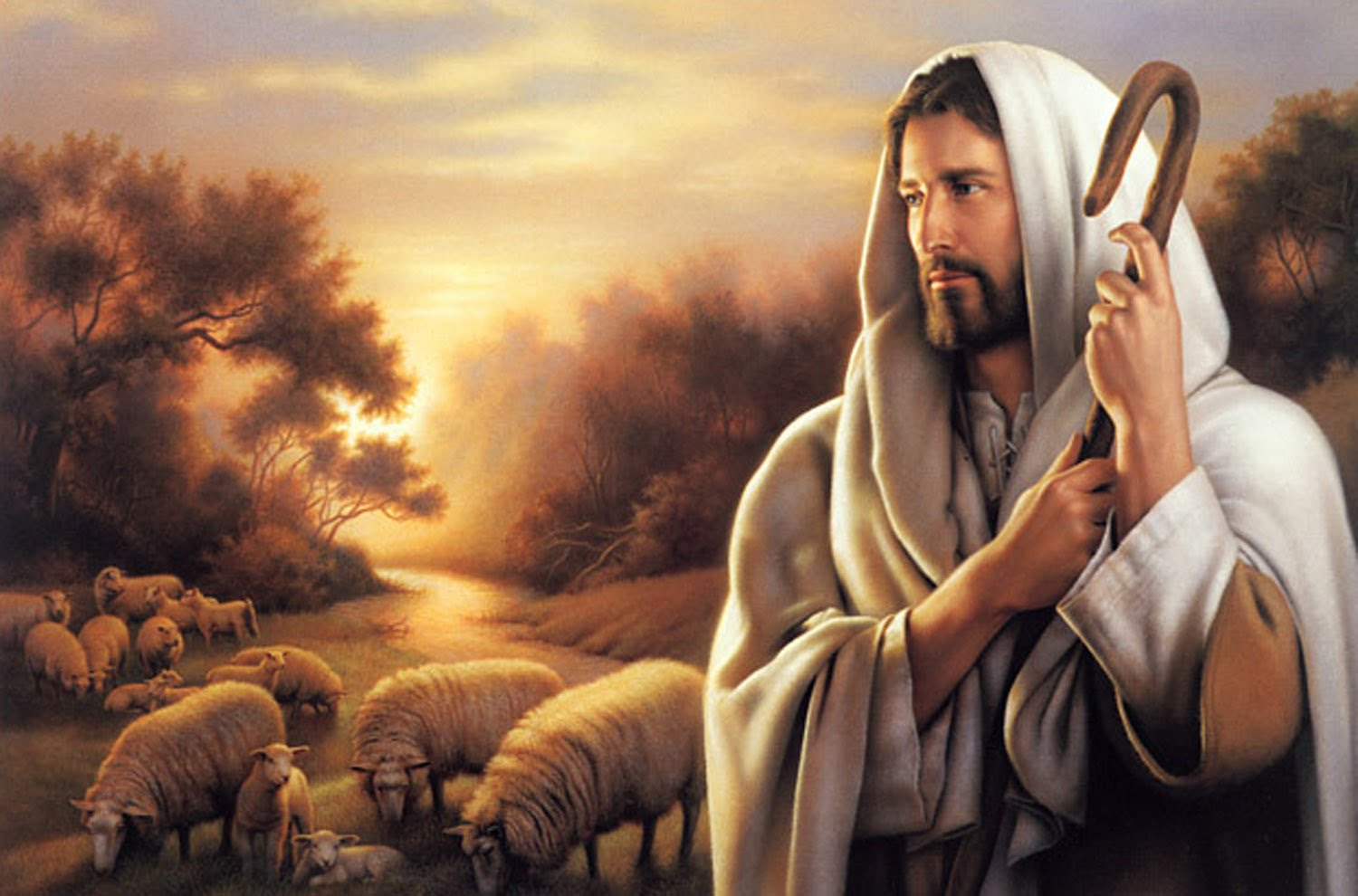GOOD SHEPHERD SUNDAY
GOOD SHEPHERD
SUNDAY
This Sunday’s Gospel is short but
sweet! It gives us one of the most
beloved images of Jesus, that of the Good Shepherd. It is worthwhile to read the entire tenth
chapter of the Gospel of John on this day, the Fourth Sunday of Easter, which
is commonly known as “Good Shepherd Sunday.”
Only in the Gospel of John does Jesus call himself the Good Shepherd. He uses this image, which was very familiar
to his listeners, to illustrate the close relationship he seeks with those who
follow him.
In the other Gospels the
evangelists depict Christ as a shepherd coming to the aid of the lost sheep of
Israel. They draw on the Old Testament’s
depiction of Israel as a “flock” and the leaders whom God places over them as
“shepherds.” Jesus is described as having compassion on the crowds that came
out to see him “for they were harassed and helpless, like sheep without a
shepherd” (Mt 9:36; cf. Mk 6,34). He
tells a parable in which a shepherd leaves his ninety-nine sheep to go in
search for the one who has strayed away (Mt 18:12-13). In Luke, Jesus says to the people, “Fear not,
little flock, for it is the Father’s good pleasure to give you the kingdom” (Lk
12:32).
The Gospel of John provides an
even more vibrant and personal description of Jesus as Shepherd. With joy he says, “I am the good
shepherd. I know my own and my own know
me” (Jn 10:14). Sheep had to recognize
the voice of their shepherd if they were to be led out to pasture. It was common for shepherds to join their
flocks together at night in one enclosure for the sake of protecting them from
wild animals and thieves. In the morning
the shepherds would separate them by calling to them. Likewise, Jesus calls his sheep by name: “When
he has driven out all his own, he walks ahead of them, and the sheep follow
him, because they recognize his voice. But
they will not follow a stranger; they will run away from him, because they do
not recognize the voice of strangers” (Jn 10:4-5). How do we recognize the voice of the Good
Shepherd? In the Sacred Scriptures, in
the celebration of the Sacraments, in the preaching, teaching, and counseling
of his ministers, in our conscience, and in the wise advice of a brother or
sister in Christ. Any voice which is
contrary to these is that of a stranger.
No one in Jesus’ flock is anonymous:
“I am the good shepherd, and I know mine and mine know me, just as the Father
knows me and I know the Father; and I will lay down my life for the sheep” (Jn
10:14-15). A shepherd is both a leader
and a companion. King David enjoyed
something of this companionship, about which he composed his most well-known
Psalm: “The Lord is my Shepherd…To still
waters he leads me…He guides me along the right paths…I will fear no evil, for
you are with me” (Ps 23:2-4). When danger
approaches, the Good Shepherd does not abandon the flock, as a hired man might;
rather, he lays down his life for them. His
reward is in pleasing his Father: “For this reason the Father loves me, because
I lay down my life, that I might take it again” (Jn 10:17).
Jesus looks at his flock – at you
and me – and accepts us as a gift to him: “My Father, who has given them to me,
is greater than all, and no one can take them out of the Father’s hand. The Father and I are one” (Jn 10:29-30). True belonginess and security are found within
this flock, which is the Church. The
love shared by the Good Shepherd and his faithful flock is a participation in
the eternal love of the Father and the Son.
“My sheep hear my voice, and I know them, and they follow me; and I give
them eternal life, and they shall never perish, and no one shall snatch them
out of my hand” (Jn 10:27-28). Therefore,
whenever you feel lonely, worthless, or afraid, imagine yourself as a humble
lamb, and Jesus as the Good Shepherd who cares for you.




Comments
Post a Comment